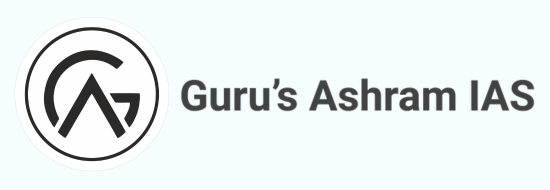United Nations Day
- United Nations Day is celebrated on 24 October every year to commemorate the anniversary of the entry into force of the United Nations Charter in 1945 after the end of the Second World War.
- The purpose of this day is to raise awareness about the goals and achievements of the international body.
The United Nations Charter:
- The treaty was signed at the end of the United Nations Conference on International Organization in San Francisco on June 26, 1945, and entered into force on October 24, 1945.
- India is one of the founding members of the United Nations and ratified the UN Charter on October 30, 1945.
- The predecessor of the United Nations was the League of Nations, established in 1919 after the First World War under the Treaty of Versailles to promote international co-operation and to achieve peace and security.
Introduction:
- The Charter of the United Nations serves as the foundational document of the United Nations. It is an instrument of international law and is binding on UN member states.
- It outlines the key principles of international relations, including equal rights for all nations and the prohibition of the use of force between nations.
- It has been amended three times since its formation – in 1963, 1965 and 1973.
Importance:
- The United Nations focuses on maintaining international peace and security, providing humanitarian assistance, protecting human rights and upholding international law.
- It has been playing a leading role in international cooperation, peace and development for more than 75 years.
Various organs of the United Nations:
General Assembly:
- The United Nations General Assembly (UNGA) is the main policy-making organ of the organization. Comprised of all member states, the General Assembly provides a unique forum for multilateral discussions on the full spectrum of international issues covered by the UN Charter.
- Each of the 193 member states of the United Nations has equal voting rights.
United Nations Security Council:
- The Security Council consists of 15 members.
- Five permanent members (China, France, the Russian Federation, the United Kingdom and the United States) and ten non-permanent members are elected for two-year terms.
- India has been a non-permanent member of the UN Security Council for eight times.
United Nations Economic and Social Council:
- ECOSOC consists of 54 members elected by the UN General Assembly.
- It is the principal body for coordination, policy review, policy dialogue and recommendations on economic, social and environmental issues.
Trusteeship Council:
- One of the main organs of the United Nations, it was established to oversee the administration of the trust territories as they transitioned from colonies to sovereign nations.
The International Court of Justice:
- The ICJ is the only international court that settles disputes between 193 UN member states.
The Court can adjudicate on two types of matters:
- Disputed matters are legal disputes between States and advisory proceedings are requests for advisory opinion on legal questions referred to it by organs of the United Nations and certain specialized agencies.
Secretariat:
- The Secretary-General is appointed by the United Nations General Assembly based on the recommendation of the Security Council and serves as the chief administrative officer of the organization.
Exclusive:
- Five of the six principal organs of the United Nations namely UNGA, UNSC, ECOSOC, Trusteeship Council and United Nations Secretariat are located at the United Nations Headquarters in New York.
- However, the ICJ is located in The Hague, Netherlands.
Challenges Faced by the United Nations:
Power alignment:
- The UN suffers from a power imbalance between rich and developing countries, making it difficult to implement its goals. These alignments challenge the organization’s ability to act fairly and address global issues effectively.
Security and Terrorism:
- The United Nations is facing emerging security challenges, including terrorism and ideological conflicts. While addressing traditional threats, it will also have to deal with broader issues such as human security, poverty and disease, expanding its role in conflict prevention and global security.
The Establishment of Peace:
- Modern peacekeeping faces difficulties, especially in internal conflicts where combatants often disregard the neutrality of the United Nations. The challenge lies in the transition from traditional peacekeeping to peacekeeping, using rapidly deployable teams to effectively address conflict zones.
Challenges to human rights:
- The United Nations faces the challenge of establishing and strengthening national human rights institutions, especially in post-conflict countries. Ensuring that these systems comply with international standards is crucial for the long-term protection and promotion of human rights globally.
Financial constraints and liabilities:
- The UN is grappling with financial instability due to delays in Member States “assessed contributions, hampering its operational effectiveness and ability to meet global commitments.
Proposals for reform of the United Nations:
Extension of Permanent Membership and Inclusive Representation:
- Expanding the number of permanent members beyond the P5 and addressing the veto power can lead to a more representative and democratic Security Council.
- It will potentially support more countries, especially under-represented regions such as Africa, in decision-making.
Reducing inefficiencies in administrative processes:
- Streamlining the UN’s administrative processes and reducing bureaucratic complexities can significantly improve its efficiency.
India’s role in UN reform:
- India has consistently demonstrated its commitment to global peace, security and development through its contributions to UN peacekeeping missions, humanitarian assistance programmes and various UN agencies.
- India desires a permanent seat in the Security Council and emphasizes that such a move will make the Council more representative and responsive to the needs of the 21st century.



